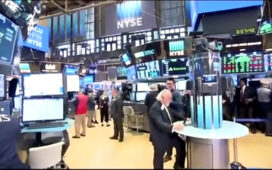As dawn breaks over the sprawling factory grounds of the Normal plant, a profound shift looms over the horizon for Rivian, the electric vehicle manufacturer known for its commitment to reinventing automotive transport. The company’s recent announcement of a 10% reduction in its workforce is a stark reminder of the volatility inherent in the tech and automotive sectors. This move, reflective of broader market adjustments and operational efficiencies, coincides with a period of notable activity in the global financial markets, particularly in foreign money futures trading at the Chicago Mercantile Exchange.
The Impact on Rivian’s Workforce
Rivian’s decision to streamline its workforce, impacting its Normal plant, is not taken lightly. With a 10% cut in its salaried jobs, the company joins other electric vehicle manufacturers in a challenging quest for sustainability amid economic pressures. This reduction marks the third round of layoffs since July 2022, underscoring the company’s focus on cost efficiency and positive margins as it navigates through turbulent economic conditions. RJ Scaringe, Rivian’s CEO, emphasized the necessity of these layoffs in achieving operational efficiencies, a sentiment echoed in the industry as competitors like Tesla also grapple with market realities. For more insight, click here.
Understanding Foreign Money Futures Trading
Concurrently, the financial markets are witnessing a whirlwind of activity, with significant fluctuations in foreign money futures at the Chicago Mercantile Exchange. Currencies such as the British Pound, Canadian Dollar, Japanese Yen, Swiss Franc, Australian Dollar, Mexican Peso, and Euro Futures have seen varying levels of volatility. These fluctuations are emblematic of the dynamic nature of global financial markets, influenced by a tapestry of economic factors. Trading volumes and open interest for each currency provide a glimpse into market sentiment and potential future trends, offering a compelling narrative of uncertainty and opportunity in equal measure.
Rivian and the Broader Electric Vehicle Industry
The challenges faced by Rivian are reflective of a broader industry trend, with electric vehicle manufacturers navigating a complex landscape of economic and geopolitical uncertainties, high interest rates, and shifting demand. Despite these hurdles, Rivian remains resolute in its mission towards the electrification of the automotive industry. The company’s strategic adjustments, including workforce reductions and production level forecasts, are measures aimed at steadying the ship amidst stormy seas. The electric vehicle industry stands at a crossroads, with the path forward requiring innovation, resilience, and a keen understanding of market dynamics. For a deeper understanding, explore here.
In the face of adversity, Rivian’s story is a testament to the enduring spirit of innovation and the relentless pursuit of efficiency and sustainability. As the world watches the unfolding narrative of the electric vehicle industry and its interplay with global financial markets, the journey ahead promises to be both challenging and exhilarating. Rivian’s workforce adjustment and the fluctuations in foreign money futures trading are but chapters in a larger saga of economic resilience and the relentless pursuit of a greener, more sustainable future.





